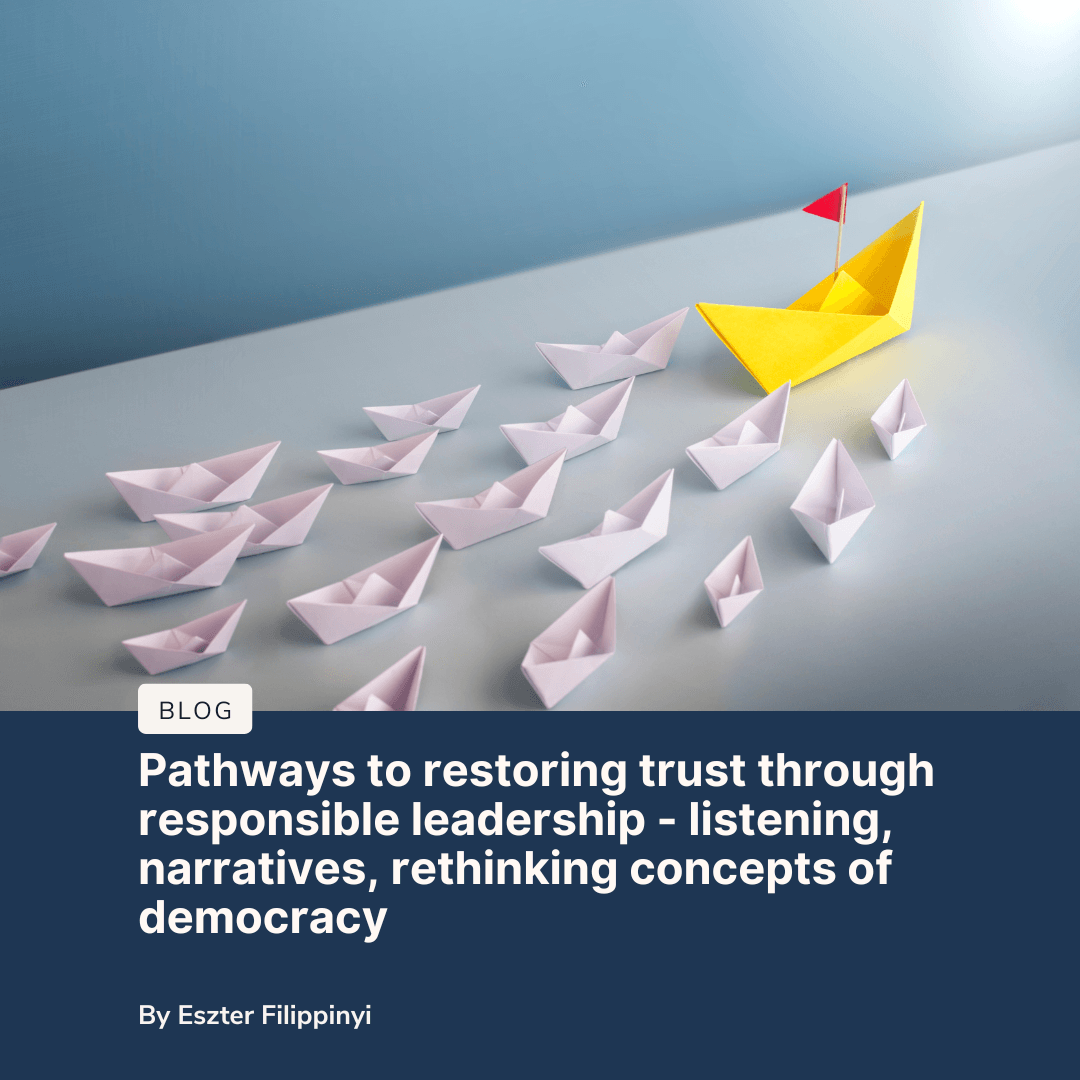We live in unprecedented times of a complete lack of trust in everything - economy, democracy, and institutions included. “Leaders have a responsibility to build spaces that invite collaboration and finding solutions rather than othering and growing the divides” – said Helle Thorning-Schmidt, Former Prime Minister of Denmark and vice-chair of the Oversight Board of Meta at her keynote speech at the 2024 Responsible Leaders Innovation Forum, hosted by the BMW Foundation in Berlin.
The event aimed at constructing this collaborative space with a diverse group of visionary leaders, industry experts, and innovators from across sectors and geographies to expose their vision, clash ideas, debate, and find shared values and ways for collaboration - for instance, by creating conditions of collective action, moving from complacency to collective solidarity.
Due to the event's location, there was a strong focus on the future of Europe. However, most of the discussions touched upon relevant themes across geographies.
Trust surfaced at interventions as impacting everything. One urgent call is to address the lack of morals of many current leaders and demand/build integrity. Several participants and the organizations they work with focus exactly on this task, such as the Apolitical Foundation – a passionate advocate of political leadership with values and vision, Accountability Lab – supporting responsible leaders and accountable institutions, or the funder collaborative I work for, the Trust, Accountability and Inclusion Collaborative.
As we promote leadership with integrity, we must remember that leaders emerge from communities and so, investing in building healthier, more empathetic communities (someone mentioned collective healing), and addressing polarization, has to be at the center of our efforts. For these efforts to be successful, several speakers claimed we needed to improve our listening skills through spaces (physical and virtual) and methodologies that invite honest, dignified, and respectful debate.
We have to listen more, but who do we listen to? President and Professor of International Political Economy of the Hertie School, Cornelia Woll reminded us that we live in the era of the attention economy and that we have not developed skills to navigate the rain of information that is falling on us. Also, we increasingly trust people who think like us, and while this has positive sides (we go local – even on social media), the worry is that we stop listening to scientists.
However, if we manage to carefully listen and build inclusive spaces of dialogue, we will also be able to come up with new narratives. Commissioner for Infrastructure and Energy of the African Union, Amani Abou Zeid alerted us about how we use – often inadvertently – harmful narratives. One example Amani gave was on the energy transition discussion. For most African countries the discussion is not about transition but about development, because it is not enough to simply transition from one energy to another - justice and power shift (for instance by building local value chains) must be at the heart of the process.
I especially enjoyed the workshop, where we explored ambitious plans for strengthening democracies with advancing technologies. My learnings from this exercise are:
Diversity means we will have different approaches and perspectives, and we won’t agree on many fronts. Co-creating spaces and processes must be carefully prepared, facilitated, and mediated for them to convert conflict into opportunity, new ideas, and collaboration.
Through collective processes and movements, much-needed new narratives and value systems based on integrity and belonging can emerge.
Our times brought unprecedented challenges, and it is no longer so clear what we mean when we speak about democracy. We need to redefine the concept of Democracy- also stressed by Sandrine Dixson-Declève, co-president of the Club of Rome. Current democratic structures are dysfunctional and broken. Social media and AI have a huge impact on democracy, so when we reimagine democracy, we must consider the challenges of the 21st century.
Because many of our institutions are broken, thought leaders must focus on envisioning the types of governance and institutions we need, and how to facilitate more diverse forms and composition of citizen engagement.
By the end of the workshop, we identified several areas to address, and I look forward to continued dialogue and collaboration with the bright minds I met at the event:

The BMW Foundation’s Responsible Leaders Network connects more than 2,300 leaders in over 117 countries. It’s a community of purpose working jointly towards a common goal: a more peaceful, just, and regenerative future. Through regular regional network gatherings and other local dialogues, the Network provides a space to build relationships, exchange ideas, and collaborate.
